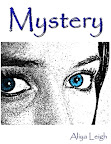Published October 20, 2010 | FoxNews.com
At least four gays have been attacked in Uganda since the publication of a front-page newspaper story that listed the African nation's 100 "top" homosexuals, according to activists there.
The Oct. 9 article in a Ugandan newspaper called Rolling Stone included photographs and addresses of the 100 individuals alongside a yellow banner that read: "Hang Them."
Rolling Stone, which is not connected to the American magazine of the same name, claimed that an unknown but deadly disease was attacking homosexuals in Uganda and that gays were recruiting 1 million children by raiding schools -- a popular rumor in the nation.
"100 Pictures of Uganda's Top Homos Leak," the newspaper's headline read.
Charles Ssentongo, deputy chief of the Republic of Uganda's embassy in Washington, told FoxNews.com that embassy officials had not seen the article as of Wednesday.
"We are not aware of that list, nor do we have anything to do with it," Ssentongo told FoxNews.com.
He said all Ugandan citizens -- regardless of sexual orientation -- deserve equal rights and protection. He declined further comment, since he had not seen the article.
In the weeks since the article was published, at least four of the people on the list have been attacked and many others are hiding, Ugandan civil rights activist Julian Onziema told the Associated Press.
A lawmaker in the country introduced a bill last year that would have imposed the death penalty for some homosexual acts and life in prison for others. The bill was shelved after it was condemned throughout the world, but gays in Uganda say they have faced a year of harassment and attacks since it was introduced. The legislation was proposed after a visit by leaders of U.S. conservative Christian ministries that promote therapy they say enables gays to become heterosexual.
"Before the introduction of the bill in parliament most people did not mind about our activities. But since then, we are harassed by many people who hate homosexuality," Patrick Ndede, 27, told the Associated Press. "The publicity the bill got made many people come to know about us and they started mistreating us."
More than 20 homosexuals have been attacked over the last year in Uganda, and an additional 17 have been arrested and are in prison, said Frank Mugisha, the chairman of Sexual Minorities Uganda. Those numbers are up from the same period two years ago, when roughly 10 homosexuals were attacked, he said.
The Oct. 9 newspaper article appeared five days before the first anniversary of the controversial legislation. After its publication, the government Media Council ordered the newspaper to cease publishing -- not because of the newspaper's content, but because the newspaper had not registered with the government. After it completes the paperwork, Rolling Stone will be free to publish again, said Paul Mukasa, secretary of the Media Council.
That decision has angered the gay community further. Onziema said a lawsuit against Rolling Stone is in the works, and that she believes the publication has submitted its registration and plans to publish again.
"Such kind of media should not be allowed in Uganda. It is creating violence and calling for genocide of sex minorities," Mugisha said. "The law enforcers and government should come out and protect sex minorities from such media."
Rolling Stone does not have a large following in Uganda, a country of 32 million whose population is about 85 percent Christian and 12 percent Muslim. The newspaper published its first edition on Aug. 23. It publishes about 2,000 copies, but a single newspaper in Uganda is often read by 10 more people.
The paper's managing editor, Giles Muhame, said the article was "in the public interest."
"We felt there was need for society to know that such characters exist amongst them. Some of them recruit young children into homosexuality, which is bad and need to be exposed," he said. "They take advantage of poverty to recruit Ugandans. In brief, we did so because homosexuality is illegal, unacceptable and insults our traditional lifestyle."
Homophobia is rife in many African countries, particularly in Nigeria, where homosexuality is punishable by death or imprisonment. In June, Pastor Martin Ssempa, chairman of Uganda's National Taskforce Against Homosexuality, reportedly told attendees of a community meeting that "eating poo poo" was part of the definition of being homosexual.
In South Africa, the only African nation to recognize gay marriage, gangs are known to carry out so-called "corrective" rapes on lesbians.
FoxNews.com's Joshua Rhett Miller and The Associated Press contributed to this report.








